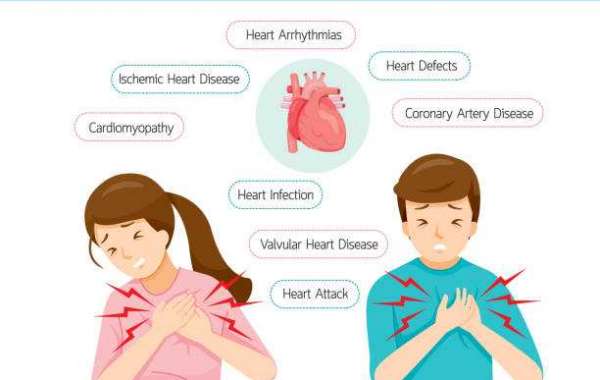Stress is an omnipresent factor in our lives, and its adverse effects on our health are widely acknowledged. For individuals dealing with common heart diseases, effective stress management becomes even more crucial. In this blog post, we will explore stress management techniques tailored to the specific needs of common heart disease patients. By incorporating these strategies into your daily routine, you can enhance your heart health and overall well-being.
Understanding the Link Between Stress and Heart Disease
Before delving into stress management techniques, it's essential to grasp the connection between stress and heart disease. Stress, particularly chronic stress, can significantly impact the cardiovascular system. It can lead to high blood pressure, increase heart rate, and even trigger inflammation—all of which can exacerbate common heart diseases. Therefore, managing stress is not just a matter of mental well-being but also a vital aspect of heart disease prevention and treatment.
. Deep Breathing and Relaxation Techniques
One of the simplest yet highly effective stress management techniques for common heart disease patients is deep breathing. By taking slow, deep breaths, you can activate your body's relaxation response, reducing stress hormones like cortisol. Practice deep breathing exercises for a few minutes each day to experience its calming effects.
. Mindfulness Meditation
Mindfulness meditation is another powerful tool for managing stress and promoting heart health. This practice involves staying present in the moment, acknowledging your thoughts and feelings without judgment. Studies have shown that regular mindfulness meditation can lower blood pressure and improve overall heart function.
. Regular Exercise
Exercise is a natural stress buster. Engaging in physical activity releases endorphins, which are your body's natural mood lifters. Consult your healthcare provider to determine a safe and suitable exercise routine tailored to your condition.
. Healthy Diet Choices
A balanced diet plays a vital role in managing stress and heart disease. Avoid excessive caffeine, processed foods, and sugary snacks, which can exacerbate stress and negatively impact your heart health. Instead, focus on a heart-healthy diet rich in fruits, vegetables, lean proteins, and whole grains.
. Social Support and Counseling
Don't underestimate the power of social support. Talking to friends, family, or a counselor about your feelings and concerns can provide significant relief from stress. Sharing your experiences and receiving support from loved ones can be therapeutic.
. Time Management and Prioritization
Feeling overwhelmed can contribute to stress. Learning effective time management and prioritization skills can help you regain control over your daily life. Make to-do lists, set realistic goals, and don't hesitate to delegate tasks when needed.
Managing stress is paramount for common heart disease patients, as it directly affects their cardiovascular health. Incorporating stress management techniques like deep breathing, mindfulness meditation, regular exercise, a healthy diet, social support, and effective time management can significantly improve your overall well-being.
At Ashpveda, we are committed to providing holistic guidance for heart health and stress management. By integrating these techniques into your life, you can take proactive steps towards better heart health. Remember that reducing stress not only benefits your heart but also enhances your overall quality of life.
Start implementing these stress management techniques today and prioritize your heart health. Together, we can combat common heart diseases and achieve a happier, healthier life.










